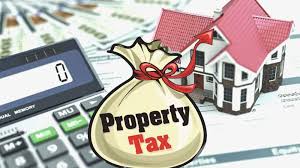The Punjab Excise, Taxation, and Narcotics Control Department (PETSCD) has introduced a significant change to the property tax system, marking a shift towards a more standardized and potentially equitable approach. Starting January 1, 2025, the property tax for both commercial and residential properties across the province will be calculated based on the official property prices set by Deputy Commissioners (DCs). This new formula is expected to bring substantial changes to the way property taxes are assessed, especially in terms of revenue generation for the provincial government.
New Property Tax System: What You Need to Know
Under the newly approved system, the property tax will no longer be based on the department’s current assessment values. Instead, the rates established by the Deputy Commissioners for property transactions will serve as the basis for tax calculations. This shift is designed to align property tax assessments more closely with the official property valuations that DCs set, potentially leading to more accurate tax liabilities for property owners.
This change, however, comes with a deadline: property owners have until December 31, 2024, to pay their taxes under the existing assessment values. From January 1, 2025, onwards, the new formula will take effect, and any unpaid property taxes will be recalculated based on the new rates set by the Deputy Commissioners.
Impact on Revenue and Taxpayer Obligations
The new formula is expected to have varying impacts on tax revenues across different property types. For residential properties, the new system is likely to increase tax revenue for the department, as the valuations by DCs are expected to be higher in many residential areas compared to the current assessment values. This could result in higher property tax bills for homeowners in districts where property values have been steadily rising.
Conversely, the impact on commercial properties could be quite different. According to PETSCD sources, the Deputy Commissioners’ valuations for commercial properties are generally 20 to 40% lower than the current market values. This discrepancy could lead to a reduction in tax revenue from commercial areas, potentially lowering the overall tax burden for businesses. However, this also means that the provincial government may need to adjust its revenue targets, as the anticipated income from commercial property taxes could fall short of expectations.
Meeting the December Deadline
Property tax inspectors across Punjab have been instructed to ensure that taxpayers meet their obligations by the end of the year. Those who fail to pay their property taxes by December 31, 2024, will find their taxes reassessed under the new formula, which could result in either higher or lower tax liabilities depending on the property’s classification and location.
This push to meet the December deadline underscores the importance of understanding the new system and its implications. Property owners, especially those in commercial areas, may want to review their tax obligations sooner rather than later to avoid any surprises when the new formula takes effect.
Looking Forward
The overhaul of Punjab’s property tax system represents a significant shift in how taxes are assessed and collected in the province. By basing taxes on the Deputy Commissioners’ valuations, the government aims to create a more consistent and transparent system. However, this change also brings challenges, particularly in managing revenue expectations and ensuring taxpayer compliance.
As the January 1, 2025, implementation date approaches, both the government and property owners will need to navigate this transition carefully. For taxpayers, understanding the new formula and paying taxes before the deadline could offer a more predictable financial outcome. For the government, the challenge will be in balancing the need for increased revenue with the realities of the new valuation-based system.
Topics #featured #News #Punjab #trending pakistan




